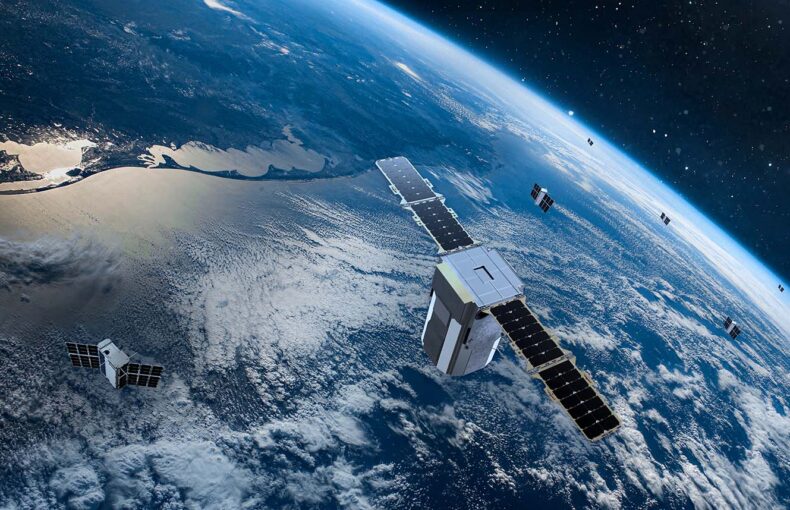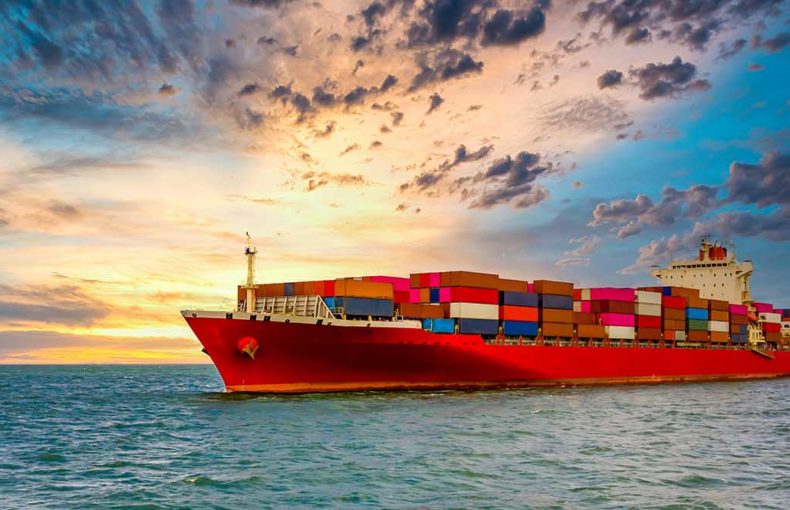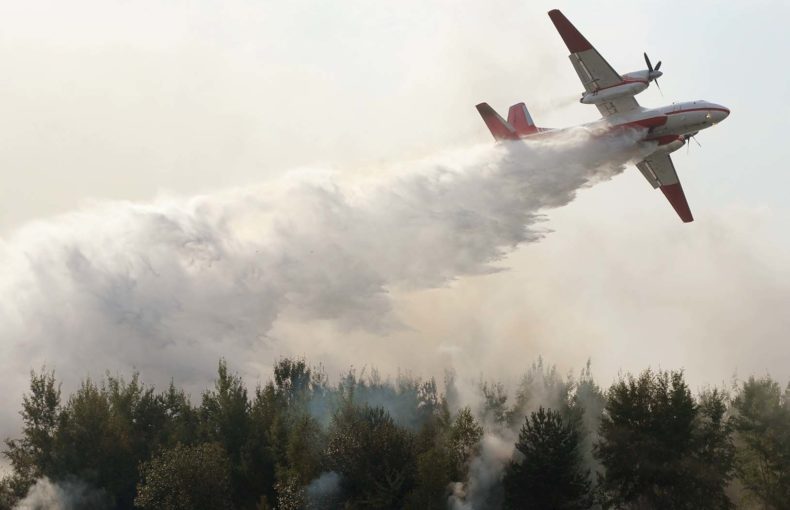Carbon emissions from air traffic plunges during pandemic. How big is the impact?
Estimates using air traffic data, shows an astonishing drop in carbon emissions! Even more than the entire passenger car emissions of France, Germany or UK.
Coronavirus related travel restrictions resulted in massive pain across the aviation industry, especially for passenger travel. As you can see using the interactive slider below, there was a 43% drop in traffic over the Western European airspace.
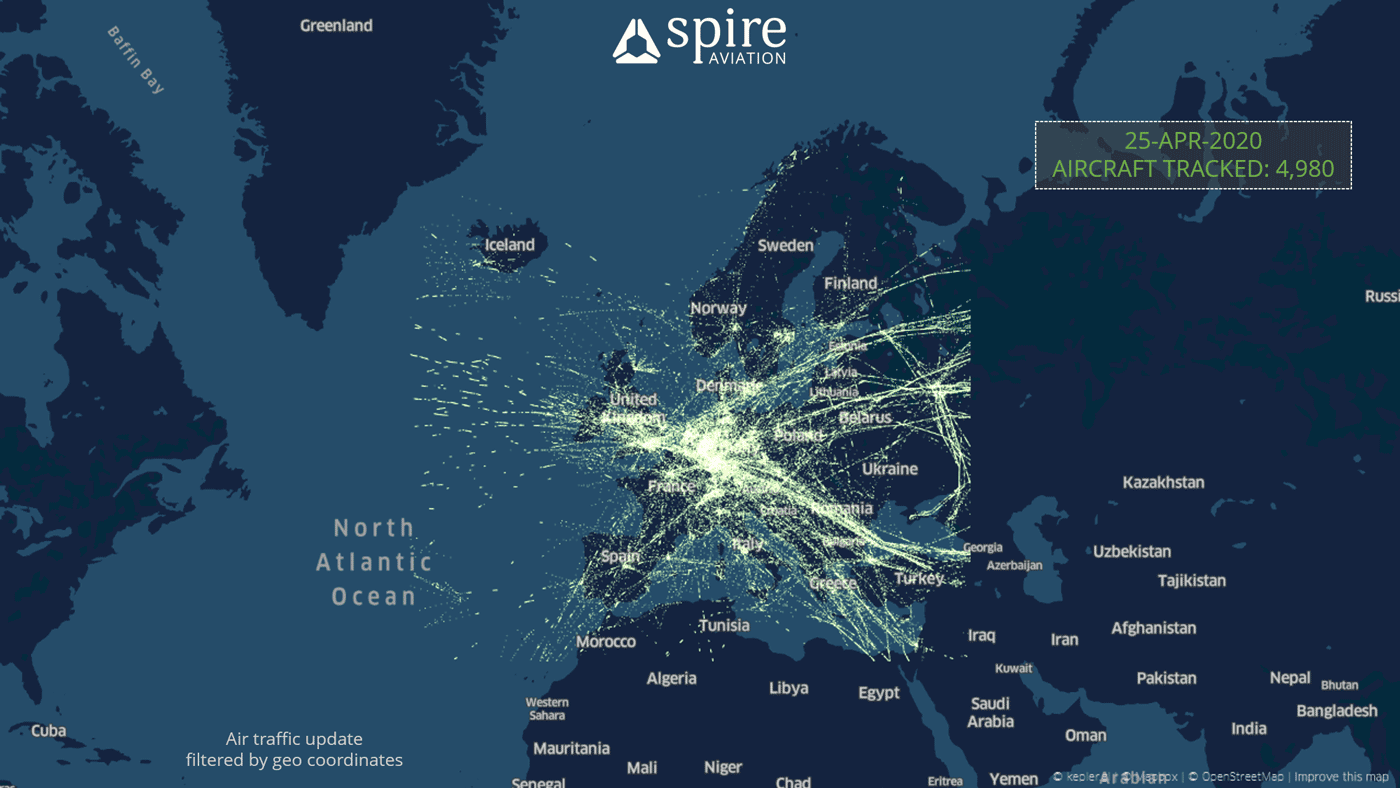
Air traffic over Western European region within specific coordinates on 25 Jan 2020 (left) and 25 Apr 2020 (right)
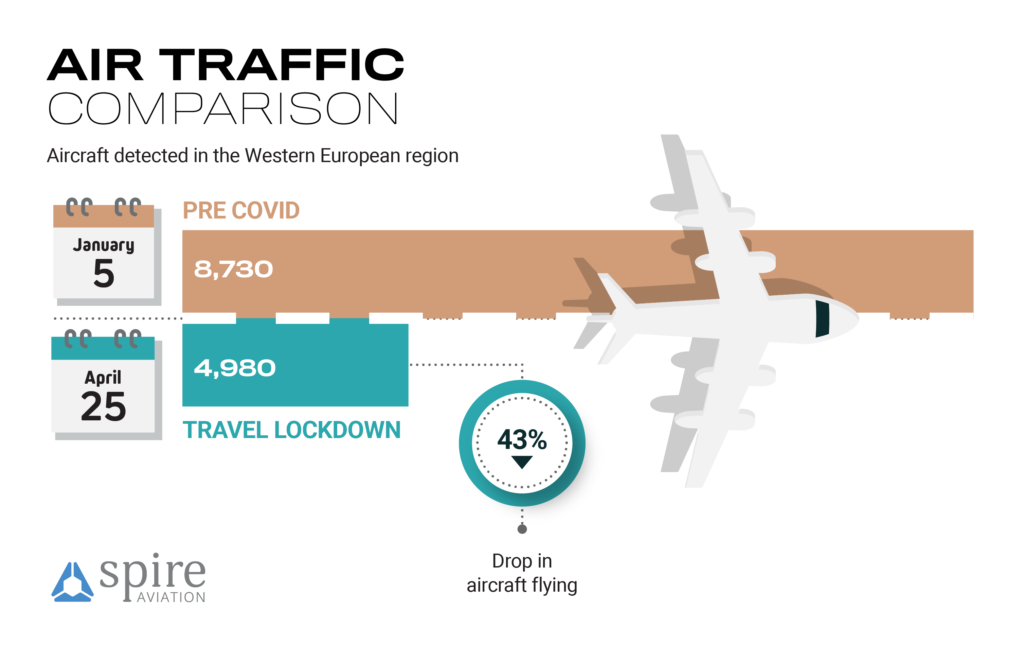
On 25th January there were 8,730 aircraft flying in the western European skies, whereas three months later on 25th April that number had dropped to just 4,980. This region is home to the three big European legacy airlines: British Airways, Air France KLM, and Lufthansa. Wondering what happened in other regions? During that period, many airlines grounded large numbers of their fleets across the globe. Although, airline activity in Europe hit rock bottom only around mid April, the three largest airlines in China had already grounded majority of their fleet weeks earlier.
How has all this affected carbon emissions?
Aircraft carbon emissions have been in the news lately, and not in a good way. This New York Times article’s headline is a case in point: ‘Worse than anyone expected’: Air travel emissions vastly outpace predictions.
With the pandemic causing such a decline in traffic around the world, you may have wondered, “How has this drop in traffic affected CO2 emissions?” We’ve put together an aviation-focused analysis that might help put this drop in more real-world terms. To get this estimate, we used Spire Aviation air traffic data and general statistics(1) on average aircraft and passenger car emissions.
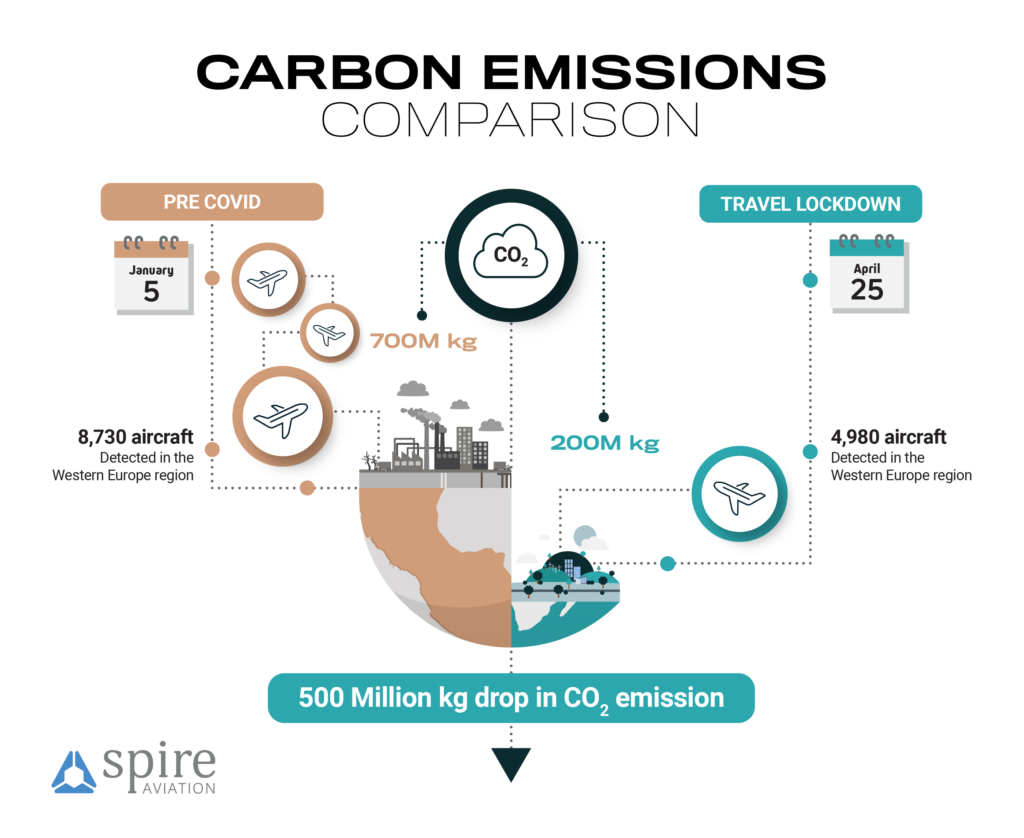
Aircraft detected over the Western European region on 25th January, is estimated to have produced 700 million kilograms of CO2 emissions (considering an average daily aircraft utilization of 10 flight hours). This is equivalent to carbon emissions produced by 61 million cars in a single day! To put this in perspective, Germany has about 48 million passenger cars, France has about 34 million and the UK has about 35 million.
The 43% drop in air traffic over Western Europe, combined with shorter daily utilization of aircraft during covid times, resulted in an approximately 70% decrease in daily carbon emissions. A whopping 500 million kg less CO2 ! This drop in aircraft carbon emissions alone was equivalent to taking 43 million cars off the road, which is more than all the cars in France or the UK.
Still not enough?
Surprisingly, even with such a huge drop in carbon emissions, many experts are saying such a drop, even if continued, still wouldn’t be enough to avoid the worst impacts of climate change estimated to occur.
There is a rising opinion that the pandemic, for all of its pain, may be the best time to think more about the impact of travel on global warming. In fact, experts have used the improvements in environmental conditions, like air quality for example, as proof that the environment could be greatly improved by lessening air and car travel. The Guardian article, “Is the Covid-19 crisis the catalyst for greening the world’s airlines?”, emphasizes the need for climate based accountability when bailing out airlines.
“If public funds are used to save companies, there is a growing argument that society should get something in return in terms of environmental improvements.” – The Guardian
Part of that self-examination and improvement effort can be to retire older generation aircraft which are less fuel efficient. Some airlines are also getting rid of their largest aircraft due to lower travel demand likely being the new normal for a while. Currently, many flights are nearly empty!
Returning to normal…
While Covid-19 effects on the travel and aviation industries are devastating, as we return to more normal traffic patterns, businesses and governments must continue thinking about ways to reduce environmental impacts and turn operations more efficient.
If we learn anything from this pandemic, maybe it’s that we need to question what “normal” means now. Is it “normal” to continue on a path that will be disastrous for our planet?
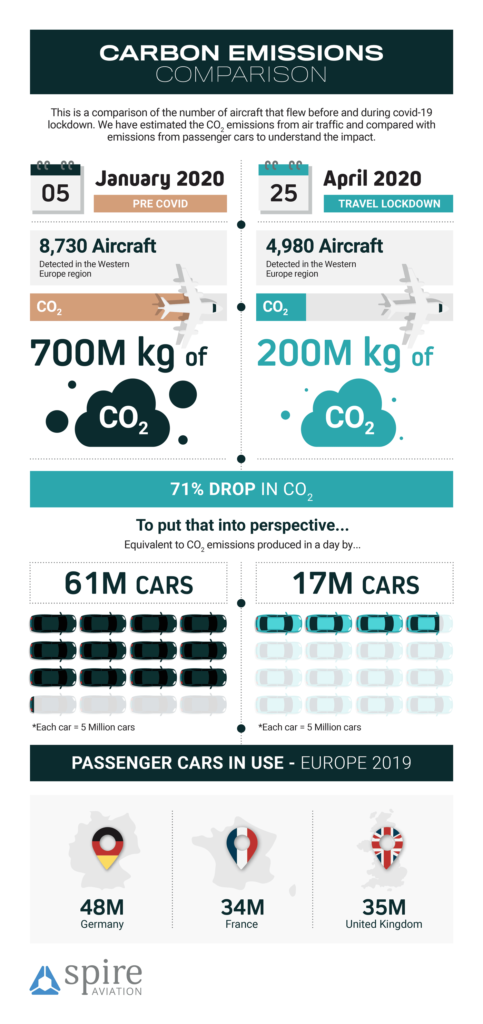
Temporary reductions in carbon emissions due to the drop in air traffic during covid-19 travel restrictions
How can we help?
Global problems require global solutions powered by global data to address them. For countries and businesses, to cut emissions in ways that don’t have huge negative impacts on the economy, they need accurate, near-real-time data to understand the problems at hand. Spire Global was built on improving the world, one satellite at a time. We believe the parallel universe of data, analytics and machine learning can transform today’s problems and shape a more sustainable future.
As lockdown restrictions are lifted, Spire Aviation will continue to track the impacts on air traffic. Check out our data stories, which includes more covid-19 related analysis.
Arguments are getting stronger for the aviation industry to be bound with green strings in exchange for taxpayer bailouts. Covid-19 lockdown brought a deadly winter for aviation, which saw all airlines severely impacted. No doubt about it, but it’s also perhaps a time to analyze impacts related to our use of the planet and its finite resources.
(1)References:
https://www.icao.int/environmental-protection/Carbonoffset/Pages/default.aspx
http://web.mit.edu/airlinedata/www/Aircraft&Related.html
https://www.boeing.com/commercial/aeromagazine/articles/qtr_4_08/pdfs/AERO_Q408_article03.pdf
https://www.acea.be/statistics/tag/category/report-vehicles-in-use
https://www.epa.gov/greenvehicles/greenhouse-gas-emissions-typical-passenger-vehicle
 Written by
Written by